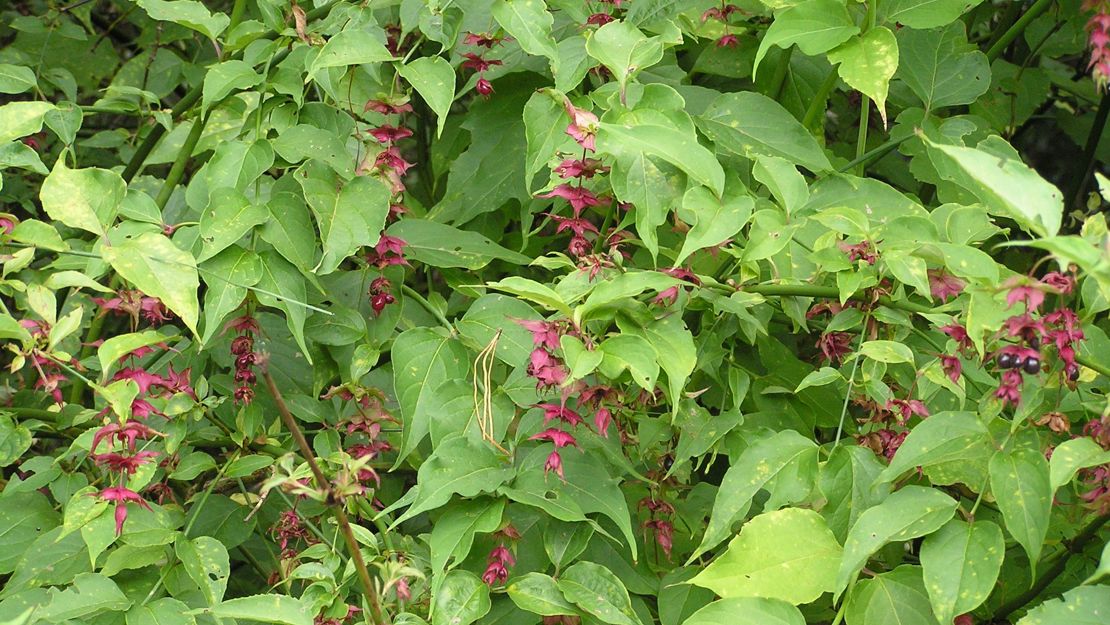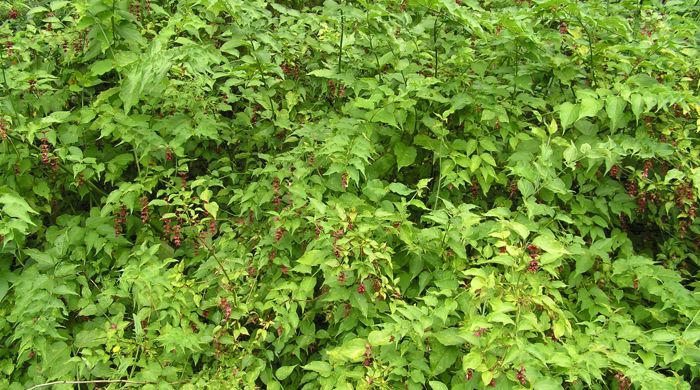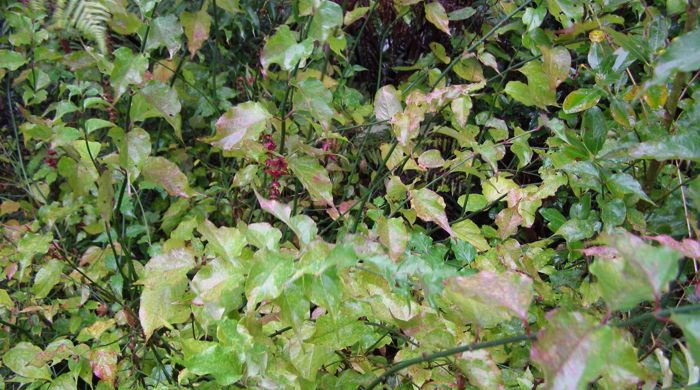Leycesteria formosa
Himalayan honeysuckle
Family: Caprifoliaceae
Origin: Himalayas

Regional Pest Management Plan (RPMP) status
- Whole region — Sustained control
- Hauraki Gulf Controlled Area Notice pest
General description
Many-stemmed deciduous or evergreen perennial shrub < 2 m tall. Stems are round, hairless and hollow. Leaves are pointed, heart-shaped and opposite. Flowers are white, funnel-shaped and borne in terminal drooping spikes surrounded by red/purple bracts in December – May. Berries are dark purple/brown and produced in autumn.
What you need to know
To help protect our environment:
- You must not breed, distribute, release or sell Himalayan honeysuckle within the Auckland region.
- You must not plant Himalayan honeysuckle within the Auckland region, unless you are transferring an existing plant on your land to another location within the boundaries of the same property.
- You must destroy any Himalayan honeysuckle on land that you occupy if it has been planted in breach of the above rules and you are directed to do so by an authorised person.
Habitats
Open and disturbed forest, shrubland, riparian areas, gullies, roadsides.
Dispersal
Seeds dispersed by water, birds, possibly mammals. Human-mediated dispersal through dumping of garden waste and movement of contaminated soil.
Impact on environment
Forms dense stands, excluding native vegetation. Rapidly dominates disturbed forest areas, potentially competing with native colonisers such as tutu.
Control
Site Management
Follow up treated areas 3 times per year. Encourage natural regeneration of native plants or replant treated areas where possible after 2-3 treatments to establish dense ground cover and minimise reinvasion.
Recommended approaches
Physical control
Method: Dig out.
Plant parts requiring disposal: Seeds.
Disposal options: Remove to greenwaste or landfill if practical.
Biocontrol
Biocontrol is currently not available for this species.
Community agrichemical control recommendations
No qualifications: Cut stump and paste freshly cut base of stems with metsulfuron gel.
Basic Growsafe certified: Cut stump and spray freshly cut base with 1g metsulfuron-methyl per 1 L of water.
Certified Handler/Experienced agrichemical user: Foliar spray with 5g metsulfuron-methyl per 10L.
Caution: When using any herbicide or pesticide please read the label thoroughly to ensure that all instructions and safety requirements are followed.





